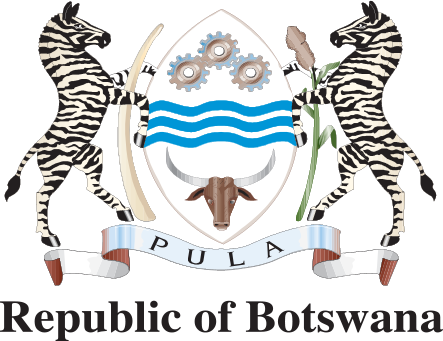Overview
The Small claims court operates in the Magistrate courts of Botswana and has limited powers as prescribed by the Act.
The proceedings of the court are open to the public but may be held in private (in camera) for reasons of confidentiality or other special circumstances.
This court is only open to natural persons (not available to corporations) except as defendants or counter-claimants.
The objective of the Small Claims Court is to provide simplified procedure and allow access to justice for those without the means to engage lawyers for claims which are within the powers of the court.
The Small Claims Courts' jurisdiction is limited to a maximum of BWP10, 000.00.
Key characteristics of the small claims court:
- The atmosphere in the court is relaxed and informal.
- The proceedings are conducted in any of the official languages of Botswana.
- Lawyers are not allowed to represent parties in that court.
- The court may allow or call additional witness(es) to give evidence.
- Interpreters are provided for those who do not understand any of the official languages used in court.
- If a plaintiff is unable to prepare their own documents, the clerk of court is available to assist.
- Strict rules of evidence do not apply in the court and cases before the court must be completed in one sitting.
- The order of the court is final and cannot be appealed against but can be reviewed on the grounds that the High Court did not have jurisdiction over the matter.
Who is eligible?
Any natural person claiming an amount less than BWP10,000 is eligible.
How do I get this service?
- An individual can file a claim in the Small Claims Court by filing an application at either the Gaborone Extension II or Francistown Magistrate Court.
- To serve a standard letter of demand to the party you wish to take to court. The letter should set out your claim and demand that it be settled within 14 days, failing which action will be instituted against the defendant (Letter of Demand - Form 1).
- The opposing party has 14 days to respond. If no payment is made after 14 days, applicant approach the court to obtain a Summons form (Summons- Form 2) on which the Magistrate will set the case for hearing. The Summons form will also include particulars of the claim:
- The nature and amount of the claim.
- The defendant’s full names, place of residence and place of business or employment.
- The interest, if any, which shall not exceed 10 per cent per annum and the amount claimed up to the date of the summons.
- Any abandonment of any part of the claim.
- The applicant must then arrange the serving of the summons form to the defendant.
- The plaintiff shall return a copy of the summons and an affidavit of service (Part III of Form 2) to the clerk of the Court within three days of serving the defendant.
- If the defendant satisfies the claim by paying, the plaintiff will withdraw the action ( Notice of Withdrawal - Form 7 ). The plaintiff may also withdraw the claim if he accept the defendant’s counter offer.
- If an order in the Small Claims Court is provided against the defendant and the defendant fails to comply with the order, the applicant apply to the Clerk of Court to the issue of a writ of execution (Writ of Execution - Form 8).
- The Clerk instructs the Deputy Sheriff to serve and enforce the writ of execution. The Deputy sheriff will demand payment of the debt on behalf of the plaintiff, with the authority to seize and sell property.
- The Deputy Sheriff will provide the plaintiff with the proceeds of any petition or sale of the property of the defendant at the conclusion of the execution.
What supporting documents are required?
In order to submit a claim, an plaintiff will need to submit items one and two below, and potentially items three and four:
Plaintiff will also need to provide any documents, letters, contracts or other items forming evidence upon which their claim is based.
How long will this service take?
A case in the Small Claims Court typically takes about three (3) months.
Keywords
claims, debts collection, small claims, claim demand, small claims court
